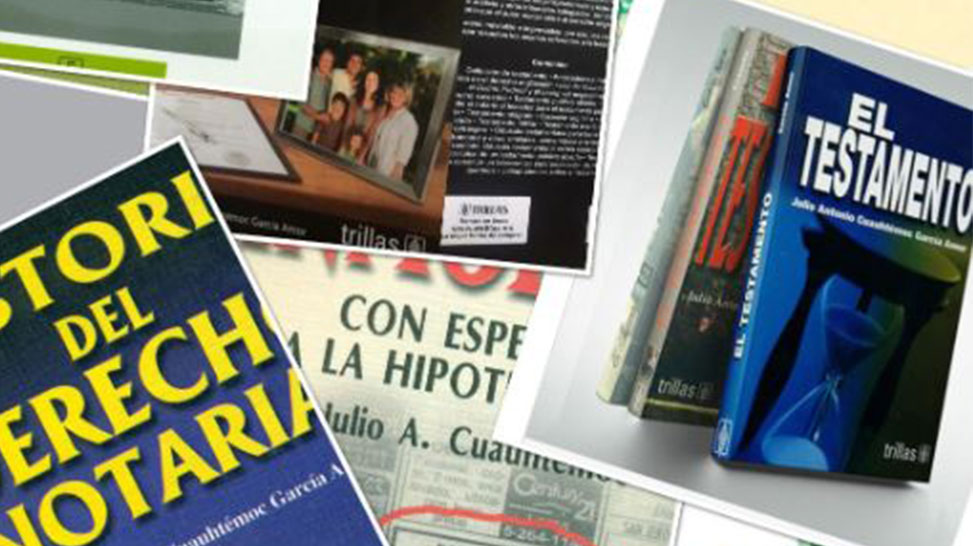Differences between Civil Association of Condominium Owners and the P en C (Condominium Property of the SAT of the SHCP)

Differences between Civil Association of Condominium Owners and the P en C (Condominium Property of the SAT of the SHCP) The attributes of a natural person will be the same attributes of a legal entity, meaning Civil Association of Condominium Owners, or any other corporation, and unlike a P in C, (Nomenclature of the Tax Administration System which means Condominium Property ) It is my opinion that, in the latter, it is relatively new and is used, or is born to be subject to the rights and obligations of the treasury, to belong to the tax register, or to be audited. But, although it is true that it is effective for fiscal matters, sooner or later it will be ineffective, and will have legal consequences, and normally these consequences of legal inefficiency will be economic against the pockets of the owners of a condominium complex. In the P in C, in my opinion, the desired personality attributes cannot be found, which are definitively found in a physical person and in a legal person, for example: these last two have the capacity for enjoyment and exercise. , understanding the capacity for enjoyment as that which is acquired by the simple fact of being born; that is, in the case of a natural person, and in the case of a legal entity in this case a civil association of condominium owners, by the simple fact of being legally constituted in a public deed; It can be said that it is born or created. In a natural person, the capacity is acquired by birth and is extinguished by death, that is, the capacity is extinguished because the person no longer exists, or the legal personality is extinguished; it dies, and in the same way in a corporation or a legal entity it is liquidated if it is a commercial company, and if it is an association it is dissolved, and there are several reasons why associations end according to as established by law: why they become impossible to achieve their objective, due to the expiration of their term in their statute or constitutive regulations, by unanimous agreement of the members in the General Assembly, because they have completely achieved the objective of their foundation, and Even a condominium association can be dissolved due to the dilapidated state of the property. After doing an analysis, I do not see all the attributes of legal personality in the figure of the P in C, which are so necessary, I simply see fiscal advantages, since with this qualifier the Tax Administration Service controls, has in their registry different properties, and give them their Federal Registry of Causatives, to supervise them. If we address the issue of condominium and analyze the natural person and the civil association as a legal entity, we will see that the natural person has a name, as a civil association will have when obtaining its name, which is obtained today in day through the permit issued by the Ministry of Economy, if we continue analyzing the natural person, he or she has a domicile and the civil association will also have a mandatory domicile in its articles of incorporation notarized before a notary, and if we continue analyzing the attributes of personality we see that the natural person will also have nationality and the civil association also has nationality, that is; It will be a Mexican civil association, since there are commercial companies from the United States of America and other countries, in this case our civil association that concerns us will be a condominium that is eminently a Mexican civil association, since it is evident that They discuss matters of mutual benefit that refer to matters in Mexico. The natural person also has another of the most important attributes, which is their capacity to exercise, which as we all know: in Mexico and anywhere else, it is inferred by the age of majority and is lost for different reasons, and likewise in an association. civil capacity is inferred in its constitutive act, that is; is born in the notarial act, its capacity and limitations are expressed in its corporate purpose, in its statute, in the powers and faculties that are authorized to the board of directors, the board of directors, the supervisory board by law, or through their assemblies. The natural person can also be subject to fiscal supervision, as can a legal entity and in this case a civil association of condominium owners. This last attribute of personality is one of the few attributes that are clearly defined, and it can be seen that it occurs in a P in C, since practically this is a nomenclature of the Tax Administration System to fiscally control a condominium, to take note of your federal registry of deceased, to take note of your address, but for example not of its duration, since an association is clearly stated in its statute that it has a term, not in the P in C. For this reason, since my very personal point of view: a P in C, although it is true that it is effective for fiscal matters, sooner or later it will be ineffective, and that ineffectiveness will normally have consequences
Of animals or pets in a condominium complex and rentals of temporary accommodations

Of animals or pets in a condominium complex and rentals of temporary accommodations By Cuauhtémoc García Amor Pets and temporary accommodations are always controversial and difficult topics in condominium complexes. The law speaks of animals that, due to their size or nature, affect the safety, health or comfort of the condominium; each case must be looked at individually. A kitten, a French Poodle puppy is not the same as a Great Dane, or thinking that our pet is a Boa or a Lion even if it is a puppy. As an integral part of the original deed when a condominium unit is acquired, the regulations of the complex itself are attached, and by signing the deed of sale, the buyer is bound by the tenor of the regulations that exist there. That is: the regulation is part of the property title. Property by its essence can be: “Private property”, “Co-ownership”, and with the combination of these two, the third type of property called: “Condominium” is born. In the Condominium regime, direct ownership and co-ownership are combined: one is one hundred percent owner of our condominium unit, and one is a co-owner, or co-owner in the proportion of our undivided share in the common areas. If, for example, there are ten condominium units, the condominium owner will own one hundred percent of his condominium unit but will also have one tenth of the common areas, the latter right that he will share with his neighbors. In Mexican Law it is said that co-ownership in a condominium is a “limited right”, even for Spanish Law it is a “poor right” and in fact it is limited and poor, because as far as common areas are concerned we will always have to abide by by the Condominium Regulations, by the Condominium Law, by the Civil Code, the principles of co-ownership established therein, by the Code of Civil Procedures, and by the General Constitution of the Republic. That is: a lower law or norm cannot be above a higher one. In other words: the regulations of a condominium complex can never contravene or be above a higher standard. Now, as far as pets and animals are concerned, there are indeed references in the Condominium Property Law of the State of Guerrero that allows condominium complexes to establish and regulate this issue in the regulations of their constitutive deed. This Law says: “…….in section VIII.- of Article 29.- The condominium owners and in general the inhabitants of the condominium will not be able to: VIII.- Own animals that, due to their number, size or nature, affect the conditions of safety, health or comfort of the condominium or condominium owners, in accordance with what is established by the Condominium Regulations….” The same law also refers to animals and says: “….in section : XIV.- The determination, if applicable, of the measures and limitations for possessing animals in exclusive property units or common areas….” But in the previous paragraph the law says: “…. Without contravening what is established by this law…” so it is important to check that agreements contrary to the law are not made, and also to review other higher regulations, and take into consideration that the regulations of a condominium are a minor statute and if it is established there Something that contravenes a higher law will be affected by relative nullity or may be voidable. There are general principles of law that must be taken into consideration, for example: distinguishing that within our private unit we have “Real Rights.” That unlike a “Personal Right” where you only have the use, enjoyment and enjoyment of the thing, the “Real Right” is understood as the power that a person has to use, enjoy and enjoy the thing, but also the power to dispose of it, understanding by disposition: the power to transmit it, mortgage it, inherit it, rent it, exploit it, use it, or subject it to any transfer of ownership. That is, within our private unit we have the right to fully exercise these rights, exploiting them however we want, including having pets. However, everything has limits, just as we cannot have a workshop, or a noisy activity, even with oxygen or hydrogen gas tanks to solder our pieces of jewelry, or assemble something industrial, we cannot put the neighbors in danger, even if we do. Let’s do it as a hobby, in that case the law is very clear, for pets the limitation in the regulations becomes a problem, because sometimes the prohibitive rule is vague, and does not specify the conditions of the limitation; that is: it does not say if it is only in the common areas, or also in the private area, since the law leaves the door open for it to be in the private area.